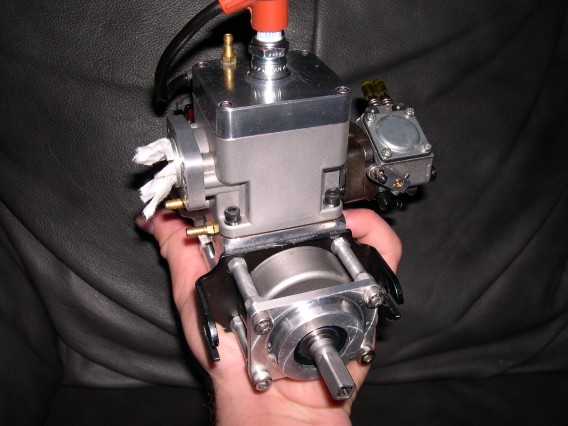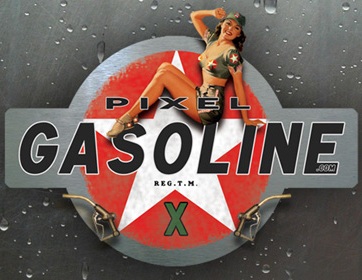OT: Regular gas in premium engine?
|
Gold Member Username: Alias747Eclipse Ti, MN Post Number: 1520 Registered: Apr-05 | Is it ok to use regular unleaded in an engine that says to use premium? I have heard some debate about this. I have a friend with a lexus that requires premium and he always puts regular in it. I also read some reviews online and on guy has put regular in his Audi for 180K miles and never had a problem. And could you get away with using mid-grade(89) in a premium? Becasue mid is usually the same price as regular around me. I don't know a ton about engines so I am curious.  |
|
Silver Member Username: CavsmaximaNew York United States Post Number: 464 Registered: Aug-06 | well my car needs premium and for the first 4 years we put regular in it and now the service engine light wont go off and first they blamed it on that so i been putting high test in and it never comes off the light, so putting regular in my car for so long screwed something up. |
|
Silver Member Username: GrebnereonPost Number: 398 Registered: Mar-06 | high compression engines require high octane gas. most BMWs Lexus , alot of those foreign cars. helps the gas "burn" quicker, more efficiently, etc. |
|
Silver Member Username: Gavbo211JL Audio 10w3v2, IL US Post Number: 261 Registered: Jan-05 | putting regular gas in is fine, as long as you run some premium through it every once in a while. if you run too much regular through it without premium you will notice taht the engine will start to knock a little bit. prolly not enough for you to even notice but it will be there. i would say for every 2-3 tanks of regular run one tank of premium and you will be just fine. |
|
Bronze Member Username: LuisdelbronxBronx, NY USA Post Number: 31 Registered: Jan-06 | If it was me i wouldnt put regular in an engine that calls for super. You will get preignition in the cylinders which will lead to knocking (or vise versa) which will lead to worn pistons and loss of power and eventually kill ur engine. |
|
Silver Member Username: Teddy21Ann Arbor, MI USA Post Number: 258 Registered: Feb-06 | how big is your tank? if its only 15 gallons, putting regular in it will only save you about $3.00 per fill up. If it calls for premium then spend the extra 3-4 dollars and put premium in it. |
|
Gold Member Username: JuliobSanto DomingoDominican Re... Post Number: 3197 Registered: Dec-05 | you can use regular gasoline, but once a month use high octane gasoline, that way you clean the injectors and many other things. Remember i'm from DR, i'm an expert messing with those things lol! |
|
Silver Member Username: Pike110Post Number: 213 Registered: Oct-05 | I have a porsche boxster and it says 93 octane gas only. I have put 89 and 87 in it and didn't notice a difference. I talked to a porsche service guy and he said it won't hurt it but it will get engine knock every once in awhile. I just put the 93 octane in it to be safe, but I have heard that you should put the lowest octane you can in your car that you can get away with per Motor Trend magazine because there isn't a benefit for the extra cost you pay unless you are driving a high performance car or a high end exotic. |
|
Gold Member Username: AdddisorderWest palm, Florida Post Number: 1611 Registered: Jan-06 | heres the deal some engines require different octain ratings because of different compression and firing ratios. if you put premium in a regular engine it will precombust and if you put regular in a premium it wont combust fast enough by the way that is really laymans terms |
|
Gold Member Username: Safe_crackerChicago, IL US Post Number: 1849 Registered: Jan-06 | You need to follow there guidelines they are there for a reason. If it says use premium then do it or suffer the consequences! It is funny because the mexicans at work do that, they put regular 87 octane in there turbo charged ricers and can't figure out why they run like that. The biggest thing has to do with timing curves, by using lower octane fuels it combusts too quickly and with the computer not being able to keep up it knocks. Some manufactures incorporate a knock sensor with a retard system to turn back the timing to compensate with a huge loss in power, my GTP is one of them. Some don't and will cause major damage in the long run, like burnt valves, piston crowns, rings, scored cylinder walls, piston skirts and guess where all that metal removed goes, yep right into your oil effecting other parts. If you can't afford the fuel prices then get a beater car. JMHO...Polo.  |
|
Gold Member Username: Safe_crackerChicago, IL US Post Number: 1850 Registered: Jan-06 | Oh by the way if you didn't know, lower the octane faster the combustion and higher the octane more slower complete the combustion. Polo..  |
|
Gold Member Username: Basshead86Try Google Post Number: 8059 Registered: Aug-05 | Premium isn't "better" for your engine, nor does it make your engine perform better than another fuel would. It is for the application you are using. Premium burns cooler, in other words, resists detonation. It is designed to withstand more heat from higher compression, more aggressive camshafts and ignition timing, turbochargers, basically to withstand the abuse of a performance engine. If premium was "better" for an engine, then diesel and kerosene would be even better, but I doubt you'd put that in your car. An engine designed to run on 87 will run WORSE on premium because it will not burn as cleanly nor will it build as much heat in the combustion chambers. Power will be lower, fuel economy will be worse, and you'll spend 20 cents more for nothing. The Premium belief mainly came from Hot Rod magazines filling up their muscle cars with the highest octane they could before a dyno run. The reason they did that is because those cars had high compression and cast iron heads. Leaded gas back then had a much higher octane than what you'll get at the pump today. ^^soemthing Jonathan wrote a while back. |
|
Gold Member Username: FrkkevinResonant Engineering..., Fort Worth... Email Post Number: 1473 Registered: Nov-05 | Thats not totally correct.. The octane rating itself is based for how long the fuel takes the burn. Higher octane gas burns slower. If you have a high compression motor and use regular you might get pre-detonation. If you don't have that problem then you know your fine.I would not run premium unless you have 10.5:1 compression or higher. Oh and btw, about the leaded gas. It was a much better fuel for the motor. Not only did it burn slower but it coated internal engine parts it came in contact with allowing for very little compression loss if any. It ensured a good seal between the rings and the cylinders as well as valve seats. |
|
Gold Member Username: Basshead86Try Google Post Number: 8070 Registered: Aug-05 | w/e you say Kevin..... |
|
Gold Member Username: Van_manBoston South, MA Post Number: 1137 Registered: Mar-06 | I have to add lead substitute to my 1954 olds. My car ran on leaded when it was made in 1954. Plus that new gas, (corn oil ethanol or something?) that they have in gas now is a killer for 2 strokes. |
|
Gold Member Username: Safe_crackerChicago, IL US Post Number: 1869 Registered: Jan-06 | Kevin is totally right this time Muddy! I'm sorry but I am a 3rd generation mechanic in my family, you are not going to convince me to run premium in my high compression engine, it doesn't work and that is a fact! If you want to learn engines try 2 cycle engines they are much harder to figure out for sure, lol. BTW until last year I was racing 25cc gas boats, lmfao...Polo..  |
|
Gold Member Username: Safe_crackerChicago, IL US Post Number: 1870 Registered: Jan-06 | I meant REGULAR in my high compression engine!  |
|
Gold Member Username: Basshead86Try Google Post Number: 8091 Registered: Aug-05 | i wasn't arguing. lol wtf Polo. lmao!  and i never said running regular was ok. my arguement was for running premium in a REGULAR motor. lmao geezx |
|
Gold Member Username: Basshead86Try Google Post Number: 8092 Registered: Aug-05 | the title of the thread i got that out of was "Premium better for your car" and that was his arguement for NOT running premium in a regular gas motor. |
|
Gold Member Username: Safe_crackerChicago, IL US Post Number: 1871 Registered: Jan-06 | Ummmm NO, it is regular gas in a Premium engine,lol LOOK ABOVE!! READ THIS..... http://www.fitchfuelcatalyst.com/techinfo/aboutfuel.html |
|
Gold Member Username: Safe_crackerChicago, IL US Post Number: 1872 Registered: Jan-06 | Oh BTW that is well over a $1000 motor in my hand! Polo..  |
|
Gold Member Username: Basshead86Try Google Post Number: 8102 Registered: Aug-05 | wtf are you talking about.... what i posted was not for reg. gas in a premium engine. mine was for Premium gas in a reg. engine, and how your car does not benefit from it. lololol |
|
Gold Member Username: Basshead86Try Google Post Number: 8103 Registered: Aug-05 | i didn't say it anyway, Jonathan did, so PM him and talk it over |
|
Gold Member Username: Safe_crackerChicago, IL US Post Number: 1873 Registered: Jan-06 | LMFAO, you sooo Goofy! Polo..  |
|
Gold Member Username: Basshead86Try Google Post Number: 8113 Registered: Aug-05 | LMAO that Jennifer girl sure has taken a liking to you Polo.  |
|
Gold Member Username: Safe_crackerChicago, IL US Post Number: 1879 Registered: Jan-06 | Ya, she gonna shoot ur @ss, lol. Polo.. |
|
Gold Member Username: Basshead86Try Google Post Number: 8123 Registered: Aug-05 | i better steer clear of her. hahahahahahahahahaha she posted a pic of sum girl in her p*nties and told you to use your hands for now. HAHAHAHAHAHAHAHAHAH!!!!! ROFL |
|
Gold Member Username: James1115Ct Post Number: 7190 Registered: Dec-04 | I was running a superchip supertuner on the 87 octane program up until yesterday running regular with no problems. My engine calls for premium. I had a loss of power but with fuel costs at such a high I didnt care I swaped the less power for the high costs. I tuned my truck now to the towing mode and premium and holy sh!T was I missing out Now that prices are down I am loving the added power. The answer to this question is simple. If your manual calls for super, run super ! if it calls for reg, run regular! If someone came up to you and said hey I will sell you this jacket for $5 and it will keep you warm all winter but I can sell you this jacket over here that is going to keep you just as warm but cost's $7 would you buy the more expensive jacket for no extra bennefit's? Now that prices are down I am loving the added power. The answer to this question is simple. If your manual calls for super, run super ! if it calls for reg, run regular! If someone came up to you and said hey I will sell you this jacket for $5 and it will keep you warm all winter but I can sell you this jacket over here that is going to keep you just as warm but cost's $7 would you buy the more expensive jacket for no extra bennefit's? |
|
Gold Member Username: BestmankindFi AudioBTL Post Number: 6761 Registered: Oct-05 | i am lost on the jacket part james. lol |
|
Gold Member Username: Basshead86Try Google Post Number: 8128 Registered: Aug-05 | no, you wouldn't buy the more expensive jacket with no extra benefits, unless you shop with your wallet |
|
Gold Member Username: BestmankindFi AudioBTL Post Number: 6765 Registered: Oct-05 | hey jame how can you talk about saving money when you just bought a bed sheet that cost how much????? |
|
Gold Member Username: Basshead86Try Google Post Number: 8134 Registered: Aug-05 | |
|
Silver Member Username: Jenifer_contrerasPIMP MemberYokosuka, Ka... Post Number: 511 Registered: Jul-06 | Hey MUDDY, what a FA_g ! Why you little F@Got talking about me! allover this board? Don't be like a G@Y,be sucka,a real MEN ! Talk always to people straight! Otherwise it's looks like you're fockina RAT, If you cont. this way,your life will be such hard,somebody will rip your azz...just remember this !  About GAS! The first rule of thumb is that higher octane gasoline is not necessarily better for your vehicle. WHAT IS OCTANE RATING? Octane, by definition, is the resistance to burn or detonation. The higher the rating, the slower the burn when ignited during the compression burn cycle of the piston. The higher octane allows for better control of burning for high compression engines. So we want to match the correct octane rating of the gasoline to the engine design to ensure complete burning of the gasoline by the engine for maximum fuel economy and clean emissions. I THOUGHT GASOLINE WITH HIGHER OCTANE REDUCED ENGINE KNOCK? It did in older engines using carburetors to regulate air/gas mix They cannot as accurately regulate the air/fuel mix going into the engine as a computerized fuel injector. Carburetors need adjustment, as a part of regular maintenance, to keep the air/fuel mix as accurate as possible. So many times, these adjustments were not made regularly causing too much fuel to be mixed with the air. When this happened the gasoline would not burn completely soaking into carbon deposits. This would cause a premature ignition of the gasoline due to the intense heat in the engine cylinder creating "engine knock." When this happened, people would change to the higher octane/slower burning gasoline to resist the premature burn, thus minimizing the knocking problem. And it worked. Good solution. However, since the middle to late 80's, engines are designed to use fuel injectors with computers to accurately control the air/fuel mix under all types of temperature and environment concerns. However the accuracy of the fuel injectors and computers is based on using the recommended gasoline for that engine. Most cars are designed to burn regular unleaded fuels with an octane rating of 87. If the vehicle needs a higher octane rating of 89-93, there is documentation in the owner's manual, as well as possibly under the fuel gauge and by the fuel fill hole. Usually you will see this rating for high performance engines only. WHAT IF I PREFER TO USE GASOLINE WITH HIGHER OCTANE RATINGS? You can, but there are no real benefits, other than the gasoline manufacturers making more money off of you. When you use a fuel with a higher octane rating than your vehicle requires, you can send this unburned fuel into the emissions system. It can also collect in the catalytic converter. When you over stress any system, it can malfunction or not do what it was designed to do properly. In the early 90's, an early warning symptom was a rotten egg smell from the tailpipe. Easy fix, go back to using regular 87 octane gasoline. The rude odor usually disappears after several tanks of gasoline. DOESN'T HIGHER OCTANE GASOLINE HAVE MORE CLEANING ADDITIVES THAT ARE GOOD FOR MY ENGINE? No. Government regulations require that all gasoline contain basically the same amount of additives to clean the injectors and valves. The only differences are the type to help create the different octane ratings. All gasoline burns at the same rate, it is the additives that create the different octane ratings for the different types of engines. REFORMULATED GASOLINE In some major cities with air pollution problems, reformulated gasoline is required. It is an oxygenated fuel, that burns really clean but can slightly lower fuel economy and engine performance. If your engine is really dirty with carbon deposits, it will also cause pinging or premature burn. In these types of situations, you may want to consider stepping up to the next grade of gasoline. The bottom line is to use the type of gasoline recommended for your engine. In some cases, like towing, or other stresses on the engine, you may find a higher octane fuel helpful. |
|
Gold Member Username: James1115Ct Post Number: 7192 Registered: Dec-04 | Hey Chad that wasnt me that was my pain in the AZZ other half!!!!!!!!!!!!!!!! The reason she can get that stuff is because I skimp on the things I dont need! but I can't wait do design my new box for the new sub I will be purchasing that will be a $450 very well spent that will be a $450 very well spent |
|
Gold Member Username: BestmankindFi AudioBTL Post Number: 6775 Registered: Oct-05 | awesome james. you gonna build it too or have it built? |
|
Silver Member Username: Jenifer_contrerasPIMP MemberYokosuka, Ka... Post Number: 512 Registered: Jul-06 |  Fuel-Saving Tips for Drivers We count on our cars to get us where we want to go, when we want to go. That sense of freedom is important to us, but we also want to be sure we do our best to conserve natural resources for future generations. Following are a few simple steps you can take to meet these goals. Have your car tuned regularly. An engine tune-up can improve car fuel economy by an average of 1 mile per gallon. Keep your tires properly inflated. Underinflated tired can decrease fuel economy by up to 1 mile per gallon. Slow down. The faster you drive, the more gasoline your car uses. Driving at 65 miles per hour rather than 55 miles per hour reduces fuel economy by about 2 miles per gallon. Avoid jackrabbit starts. Abrupt starts require about twice as much gasoline as gradual starts. Pace your driving. Unnecessary speedups, slowdowns and stops can decrease fuel economy by up to 2 miles per gallon. Stay alert and drive steadily, not erratically. Keep a reasonable, safe distance from the car ahead of you and anticipate traffic conditions. Use your air conditioner sparingly. The use of air conditioning can reduce fuel economy by as much as 2 miler per gallon under certain speeds and operating conditions. Avoid lengthy engine idling. Turn your engine off when you are delayed for more than a couple of minutes. Plan your trips in advance. Combine short trips into one to do all your errands. Avoid traveling during rush hours if possible, to reduce fuel-consumption patterns such as starting and stopping and numerous idling periods. Consider joining a car pool. |
|
Gold Member Username: James1115Ct Post Number: 7198 Registered: Dec-04 | I was thinking of having Phil do it Chad. |
|
Gold Member Username: Basshead86Try Google Post Number: 8159 Registered: Aug-05 | i wasn't making fun of you if you could read plain english. i simply stated what you did, which was harmless, and said it was funny. HOW THE f*CK am i RIPPING anybody?????? PLEASE explain that to me Jennifer...ok? |
Main Forums
Today's Posts- Home Audio Forum
- Home Video Forum
- Home Theater Forum
- Car Audio Forum
- Accessories Forum
- All Forum Topics